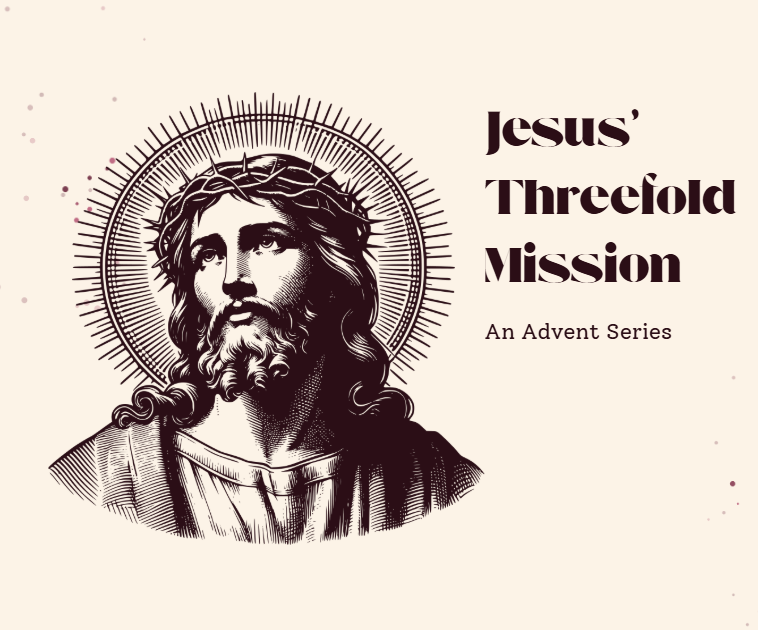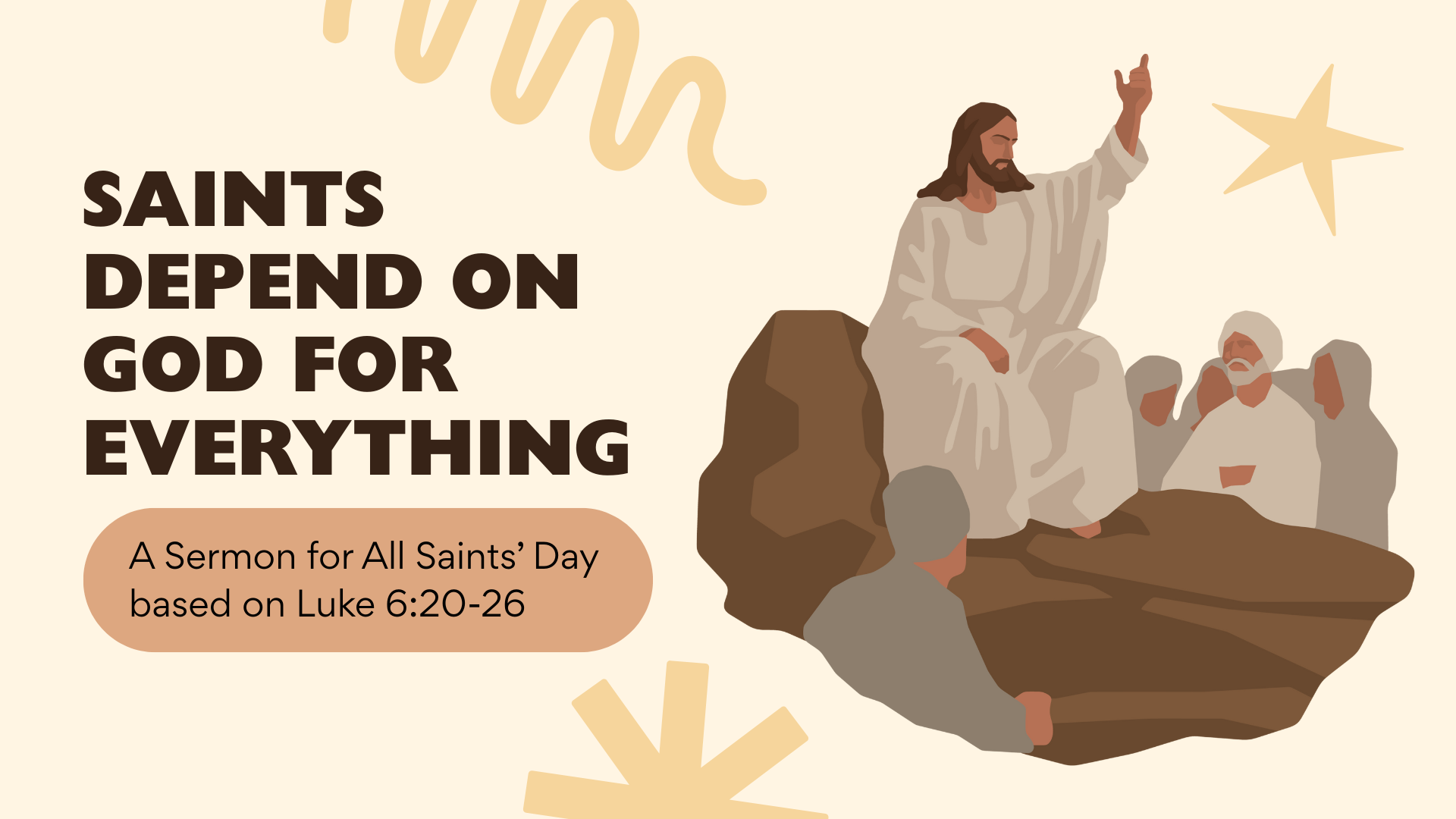“I Hope So” A discussion of the Fall into Sin and God’s Promises of the Savior

Do you care who wins the super bowl on Sunday? On Sunday, even if you turn the game on just for kicks and giggles, you probably have opinions about who will win and why. Many will have strong feelings about who the victor should be. Yet no matter how certain a Chiefs or Eagles fan may be in their team’s imminent victory, there’s always going to be a shred of doubt. The probability that one team will defeat the other may be great, but it is never 100%. Until the game is over, any opinion about who should win remains a hope.
For such a positive word, “hope” is not a fun place to be. “I hope she’s the one,” implies that your buddy is taking a bit of a risk in trusting his long-term girlfriend. “I hope we get there on time,” betrays more than a hint of anxiety. While there’s any probability that things will go wrong, it’s hard to relax, no matter how much evidence we may have to the contrary.
At first glance, the beginning of the Bible paints a pretty bleak, maybe even “hope-less” picture. After God creates a beautiful and perfect world (Genesis 1-2), the very first humans mess it up. They run it off the rails with a simple act of rebellion and disobedience (Genesis 3:1-11; Romans 5:12). Adam and Eve were given a simple command: don’t eat the fruit of this one tree, otherwise “you will die” (Genesis 2:15-17). Many have puzzled over why God would jeopardize his perfect creation with this command. Martin Luther explained that the tree Adam and Eve were to avoid became their “church,” as their willful act of obedience to God’s command would have been like singing a hymn to God. God provided Adam and Eve (and their future generations of children) a method of praising him, of submitting their wills to his, of declaring, “This is how I show the world what you’re worth to me, God!” God created human beings for relationship. He gave them a way to express that relationship.
But it was through that good command that Satan (the serpent – see Revelation 12:9 and 20:2, and 2 Corinthians 11:3) slithered his way into the equation and tempted Adam and Eve to sin (Genesis 3:1-5). As he does to all people of all time, his primary goal is to attack our relationship with God. He desires our demise (Luke 8:12). As with Eve, his primary method is to lie (John 8:44), to get us to believe that God’s will is not good, that God is holding out on good from us. He attacks the very foundation of our lives: our relationship with God. And, sad to say, he succeeded.
It is not an overstatement to say that all mankind’s problems of all kinds can be traced to this singular moment in history and its resulting consequences. When Adam and Eve gave in (they weren’t forced, but rather compelled by Satan’s temptations), the effects of sin were immediate. They gained knowledge, alright, but like I don’t know what it’s like to be attacked by a shark and never want to, they gained knowledge no one wants: knowledge of shame (Genesis 2:25 and Genesis 3:7), of strife in their formerly loving relationship (Genesis 3:12 and Genesis 3:16), of physical pain and turmoil (Genesis 3:16-19).
All creation suffers because of sin (Romans 8:22). It has corrupted our nature (Psalm 51:5), but that doesn’t get us out of any blame. We willingly give in to sin’s demands (Ephesians 2:3, Romans 7:18). We are the problem.
This is a pretty hopeless and bleak picture, isn’t it? If this were all we had to say, what hope do we have? Does this not confirm our experience, though? Haven’t we lived long enough to see that human beings often cause more problems than we solve? Aren’t you and I more often our own worst enemy, because we can’t keep up with being the people we know we should be? The statistics are not in our favor.
Now, if you asked me, “Is there any chance of salvation, of help?” what if my reply was, “hopefully!” What if all we could say was, “There’s a chance.” It might be an exciting way for the movie to set up an exciting climax to its story, that the main characters have to take a huge risk to defeat the bad guy or make it home safely, but that’s not much help when I’m face to face with the guilt and shame I know I’ve caused.
That’s why, even when humans messed everything up, God was quick to provide hope. But this hope is worlds apart from the way we use the word. God provided certainty. Even when he was enumerating the consequential effects of mankind’s sin, God offered a promise. He quickly made his plan of salvation known, so that Adam, Eve, their children, and their children’s children could know what to look for and expect. Read Genesis 3:15. He promised a Savior: a singular descendant of Eve (“your offspring… he”), who could come and defeat Satan (“he will crush your head”) through a great sacrifice (“you will strike his heel”). God was quick to reveal that despite the greatness of Adam and Eve’s sin, all was not lost. There was the sure and certain hope that a Savior was on his way.
Over the course of history, God continued to teach about this Savior to people who despaired of their own sins and inadequacies, and looked to God for hope. He promised Abraham that the coming Savior would come from his family line (Genesis 12:7). He promised the Israelites that he would send a Prophet to reveal God’s true love to them (Deuteronomy 18:17-18). He promised David that his descendant would be an everlasting King (2 Samuel 7:12-13). He promised that this offspring would be born of a virgin (Isaiah 7:14), and that he would bear the sins of all people (Isaiah 53:4-11). There are many more prophesies about the coming Savior, but these are sufficient to show that God continually held this promise before mankind. He was teaching people to put their full and certain hope in God’s fulfillment of this promise.
I hope you sense how different this is than if God said, “Hang on, I’m going to try something,” or “Let’s see if this works.” No, God said, “You have sinned, but I have the solution figured out already. I will send a Savior to forgive sins and restore the relationship with me that was broken because of it.” The probability of God doing what he says is %100. Every prophecy and prediction about the kind of Savior God would send is fulfilled in Christ. This means that hoping in God is always certain. As the writer to the Hebrews says, “We have this hope as an anchor for the soul, firm and secure” (Hebrews 6:19a).
The four Gospels – Matthew, Mark, Luke, and John, each take great pains to show how humanity’s expectations are fulfilled in Christ. Whether you’re an Old Testament Israelite waiting for the Messiah (or “Christ,” as both words mean “Chosen / anointed one”), a New Testament believer watching Jesus teach and preach, or a 21st century Christian reading this blog right now, all of us rest in the hope of what Christ accomplished.
Could it really be that all our deepest hopes and desires are fulfilled in one person, Jesus Christ? Can it be that I am fully and completely saved from the sin that is my own fault by the work that Christ accomplished for me? Can it be possible that my relationship with God is restored for me? The answer is, “Yes.” “For no matter how many promises God has made, they are ‘Yes’ in Christ” (2 Corinthians 1:20a).
A significant portion of your life as a believer will be spent growing and personalizing this hope more and more. This hope is one that deserves to be unpacked more and more through worship and time in the Word. We only had a chance to mention a few of the promises of a Savior in the Old Testament, but truly the entire Bible centers on Christ and his fulfillment of promises. For further review, read the accounts of Jesus’ life and ministry called the Gospels (Matthew, Mark, Luke, and John – we recommend beginning with Mark!). Check out chapters like Romans 5. Read the Psalms (start with Psalm 1 and keep going!) and continuously ask yourself, “How do these Psalm-prayers model a heart that hopes in God?”
Join us for Bible class any Sunday morning at 9am, as it is part of our dedicated time to unpack how the hope of Christ informs our lives! The task of growing in this hope is joyous and it is great, and we’re committed to doing it together!
Pastor Mike Cherney
*(See Martin Luther,
Luther’s Works, Vol. 1: Lectures on Genesis: Chapters 1-5, ed. Jaroslav Jan Pelikan, Hilton C. Oswald, and Helmut T. Lehmann (Saint Louis: Concordia Publishing House, 1999), 105.)







